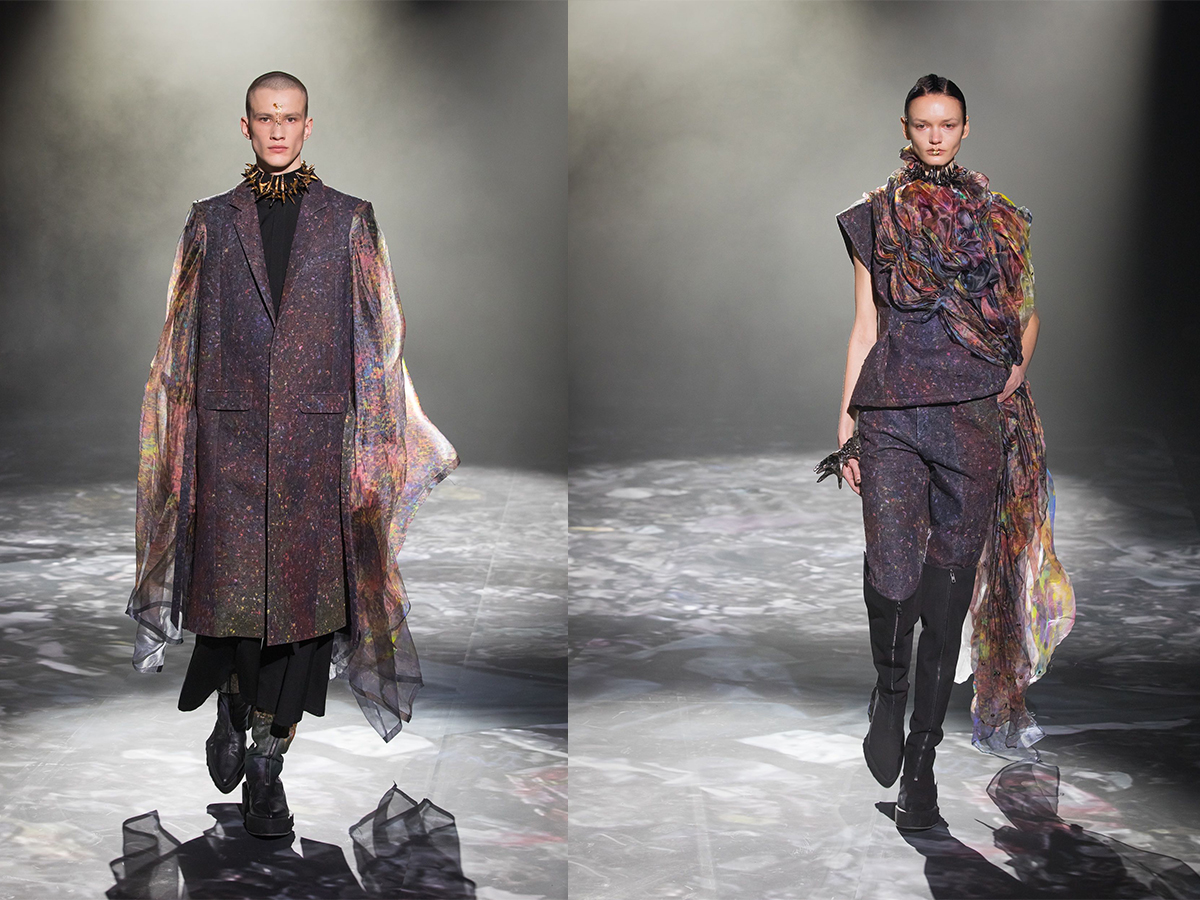Epson has partnered with a Japanese fashion designer Yuima Nakazato at Paris Haute Couture Fashion Week Spring/Summer 2023. In addition to utilising Epson’s digital textile printing to reproduce his unique designs, Nakazato developed a part of his collection using a more sustainable textile production process.
Epson’s dry fibre technology, which is used commercially to recycle office paper, and which requires virtually no water, has been adopted by the designer to produce printable non-woven fabric from used garments.
The new fabric production process was revealed in Paris as part of a three-year collaboration between Epson and the designer and was used in the creation of items for the first time, showcased during his runway show.
The collaboration between builds on the success of the Epson’s printing support for Nakazato’s collection and enables the low-impact production of high-quality custom garments.
Both Epson and the designer aim to raise awareness of the water and material waste associated with excess production.
The Paris Show illustrated how switching to digital textile printing using more environmentally friendly pigment inks offers the fashion industry a more sustainable and less wasteful means of textile printing.
The fabric used create the latest Nakazato fashion line was derived from material from used garments sourced from Africa, the destination for many discarded garments from elsewhere in the world. Epson then applied its dry fibre process to produce over 50 metres of new re-fibreised non-woven fabric, some of which was used for printing with pigment inks with Epson’s Monna Lisa digital printing technology.
“Although in its early stages, Epson believes its dry fibre technology combined with pigment ink digital printing could offer the fashion industry a much more sustainable future, significantly reducing water use while allowing designers the freedom to fully express their creativity,’ said Hitoshi Igarashi from Epson’s Printing Solutions Division.
“Epson’s Environmental Vision is committed to contributing to a circular economy, and this development could be one step towards achieving this. Dry fibre technology applied to the fashion industry offers the possibility of producing material for new clothes that have been recycled from used garments,’ added Igarashi.
In a trial of distributed printing for venue decoration, Epson inkjet printers in Japan and France with remote support from Epson engineers were used to create decorations in the venue space. Both Epson and the designer intend to continue exploring the possibilities for contributing to a more sustainable fashion industry.


